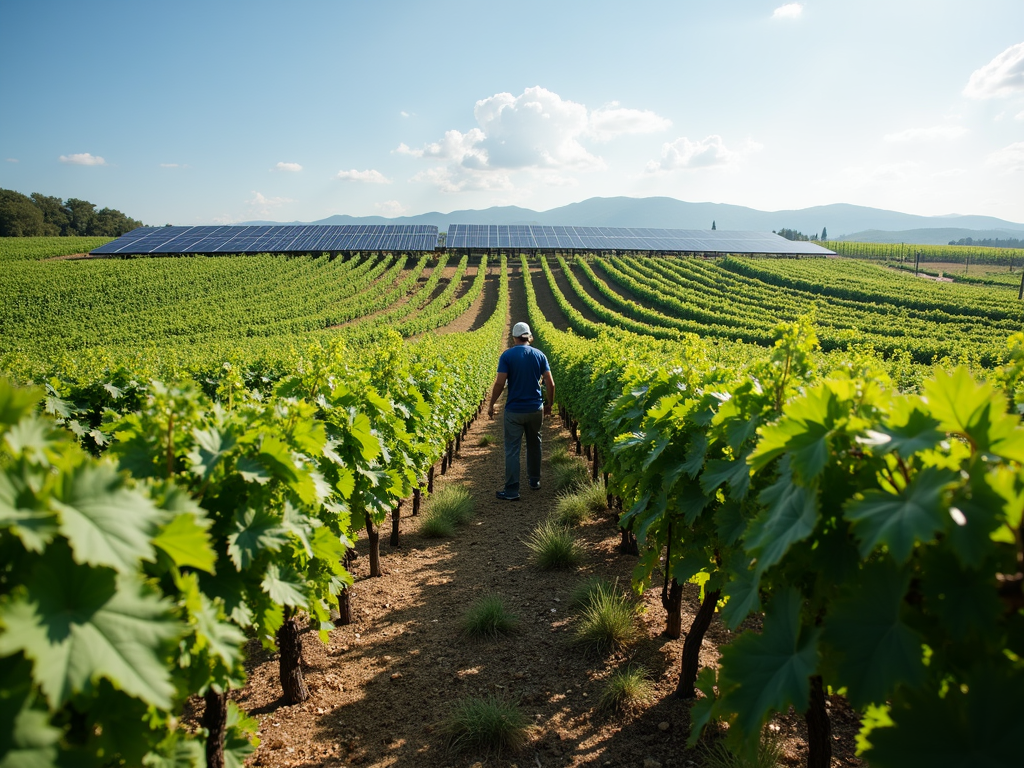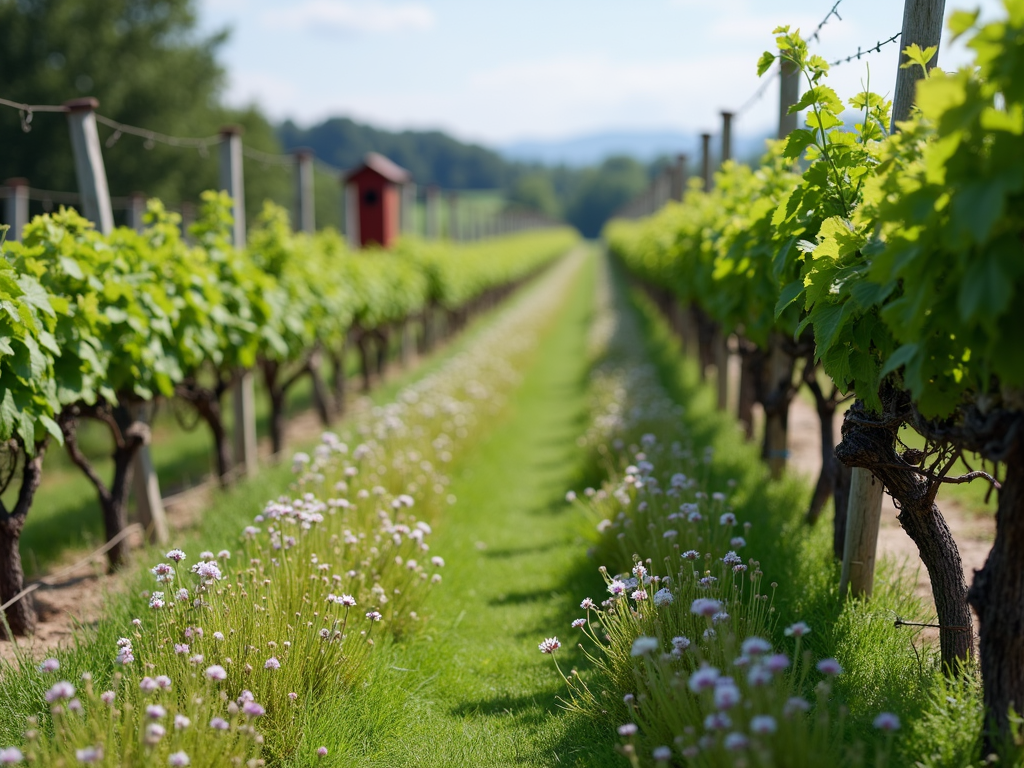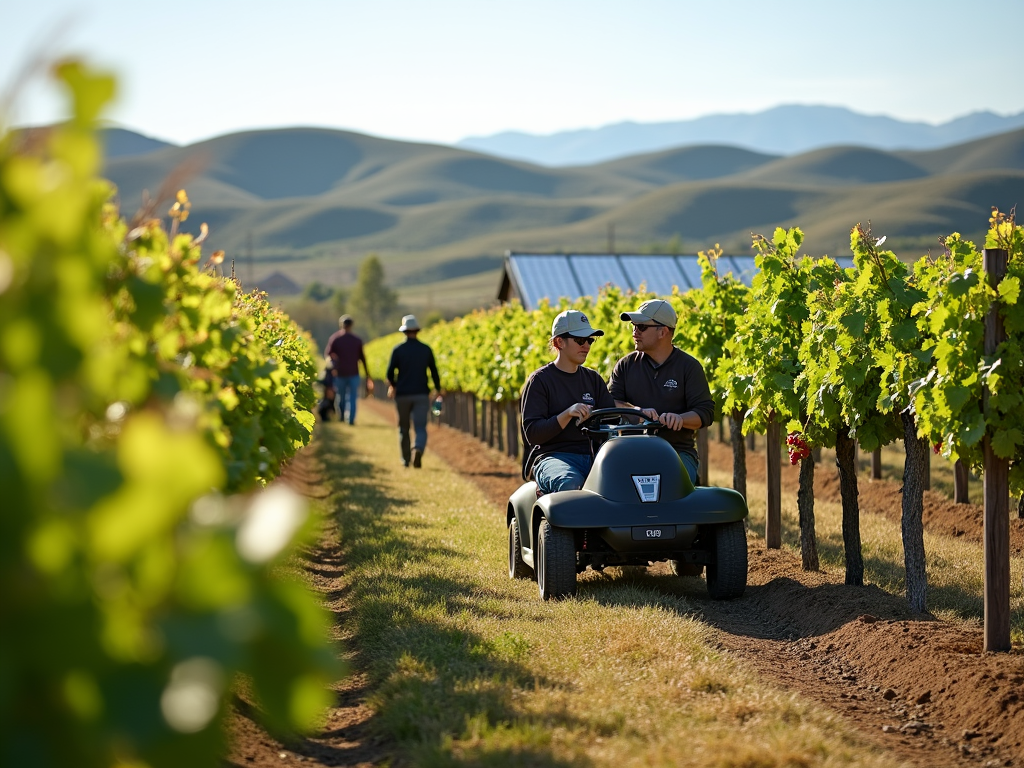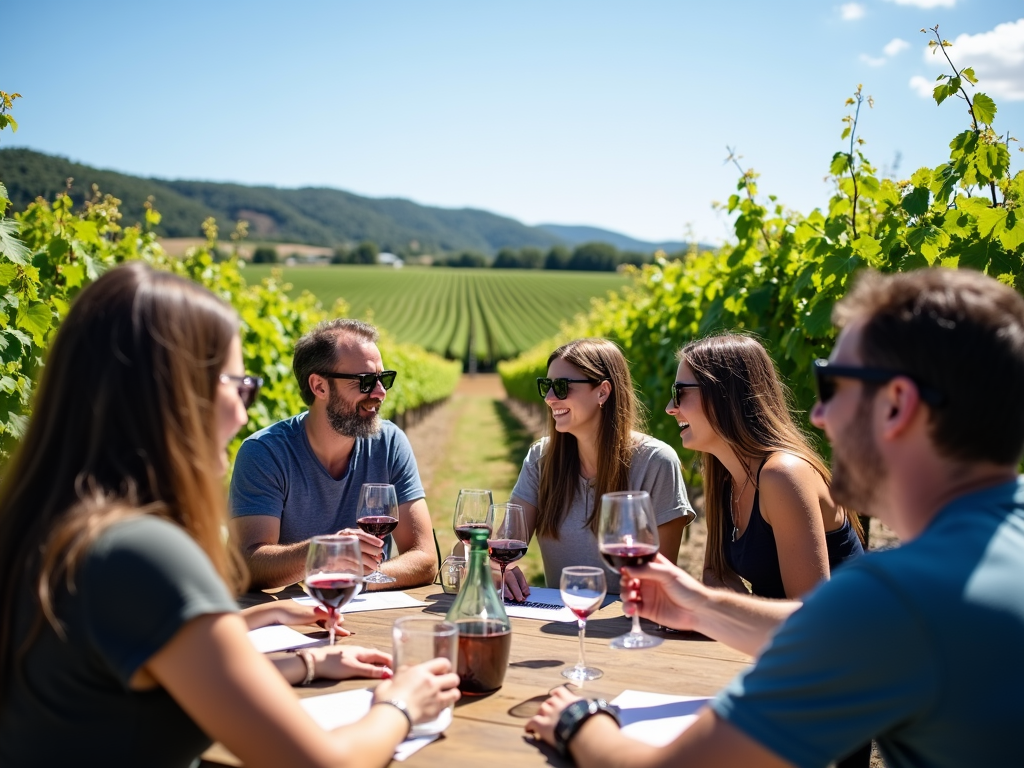Growing Green: Sustainable Practices in Modern Vineyards
In recent years, the wine industry has embraced a growing movement toward sustainability. Vineyards around the world are adopting eco-friendly practices to reduce their environmental impact, improve soil health, and produce better wines. This shift isn't just about being green—it's about ensuring the long-term viability of vineyards for future generations. In this article, we'll explore the key sustainable practices used in modern vineyards, the importance of biodiversity, and how wineries like Jackson Family Wines are leading the way in organic vineyard management.

What Does Sustainability Mean in Vineyards?
Sustainability in vineyards goes beyond just avoiding harmful chemicals. It encompasses a holistic approach to managing the land, water, energy, and biodiversity. Sustainable vineyards aim to:
- Reduce chemical inputs: By using organic or biodynamic farming methods.
- Conserve water: Through efficient irrigation systems like drip irrigation.
- Enhance soil health: By using cover crops and compost to improve soil structure and fertility.
- Promote biodiversity: By creating habitats for beneficial insects, birds, and other wildlife.
- Minimize energy use: By adopting renewable energy sources like solar power.
These practices not only protect the environment but also lead to healthier vines and higher-quality grapes.
The Role of Biodiversity in Sustainable Vineyards
Biodiversity plays a crucial role in sustainable vineyard management. A diverse ecosystem helps maintain balance, reducing the need for chemical interventions. Here's how biodiversity benefits vineyards:
- Natural pest control: Predatory insects and birds help keep pest populations in check.
- Pollination: Bees and other pollinators ensure healthy grape production.
- Soil health: Diverse plant life improves soil structure and nutrient cycling.
- Resilience: A variety of species makes the vineyard more resilient to diseases and climate change.
Many sustainable vineyards plant cover crops between rows, such as clover or mustard, to attract beneficial insects and improve soil health. Others create wildlife corridors or install bird boxes to encourage biodiversity.

Sustainable Winemaking Explained
Sustainability doesn't stop at the vineyard; it extends to the winemaking process as well. Wineries are adopting practices to reduce their carbon footprint and waste. Some key sustainable winemaking practices include:
- Energy efficiency: Using energy-efficient equipment and renewable energy sources.
- Water recycling: Reusing water from the winemaking process for irrigation.
- Waste reduction: Composting grape pomace (the leftover skins and seeds) to use as fertilizer.
- Eco-friendly packaging: Using lighter glass bottles or alternative packaging like cans or boxes to reduce shipping emissions.
These efforts ensure that the entire process, from grape to glass, is as environmentally friendly as possible.
Jackson Family Wines: A Leader in Organic Vineyards
One winery that stands out for its commitment to sustainability is Jackson Family Wines. With vineyards across California, Oregon, and beyond, they have implemented a range of sustainable practices:
- Organic farming: Many of their vineyards are certified organic, avoiding synthetic pesticides and fertilizers.
- Water conservation: They use precision irrigation and soil moisture monitoring to minimize water use.
- Renewable energy: Solar panels power their wineries and irrigation systems.
- Biodiversity: They plant native species and create wildlife habitats to promote biodiversity.
Jackson Family Wines' approach demonstrates that sustainability and high-quality winemaking can go hand in hand.

Personal Insights: The Challenges and Rewards of Sustainable Viticulture
As someone who has visited numerous vineyards and spoken with winemakers, I've seen firsthand the challenges and rewards of adopting sustainable practices. One vintner I spoke with shared that transitioning to organic farming was difficult at first—yields dropped, and pests were harder to manage. But over time, the vineyard became more resilient, and the quality of the grapes improved.
Another winemaker emphasized the importance of community in sustainability. By working with neighboring farms to create wildlife corridors, they were able to boost biodiversity across the region, benefiting everyone.
These stories highlight that while sustainable practices require effort and investment, the long-term benefits for the environment and the wine are worth it.
How You Can Support Sustainable Vineyards
As a wine lover, you can play a role in promoting sustainability by:
- Choosing wines from sustainable wineries: Look for certifications like organic, biodynamic, or sustainable on the label.
- Visiting eco-friendly vineyards: Many offer tours that showcase their sustainable practices.
- Spreading the word: Share your knowledge about sustainable winemaking with friends and family.
By supporting wineries that prioritize the environment, you help drive the industry toward a greener future.

Conclusion
Sustainable practices in modern vineyards are not just a trend—they're a necessity for the future of winemaking. By embracing biodiversity, conserving resources, and adopting eco-friendly technologies, vineyards can produce exceptional wines while protecting the planet. Wineries like Jackson Family Wines are leading the way, showing that sustainability and quality can coexist. As consumers, we have the power to support these efforts by choosing wines that align with our values.
Next time you pour a glass of wine, take a moment to appreciate the sustainable practices that made it possible.